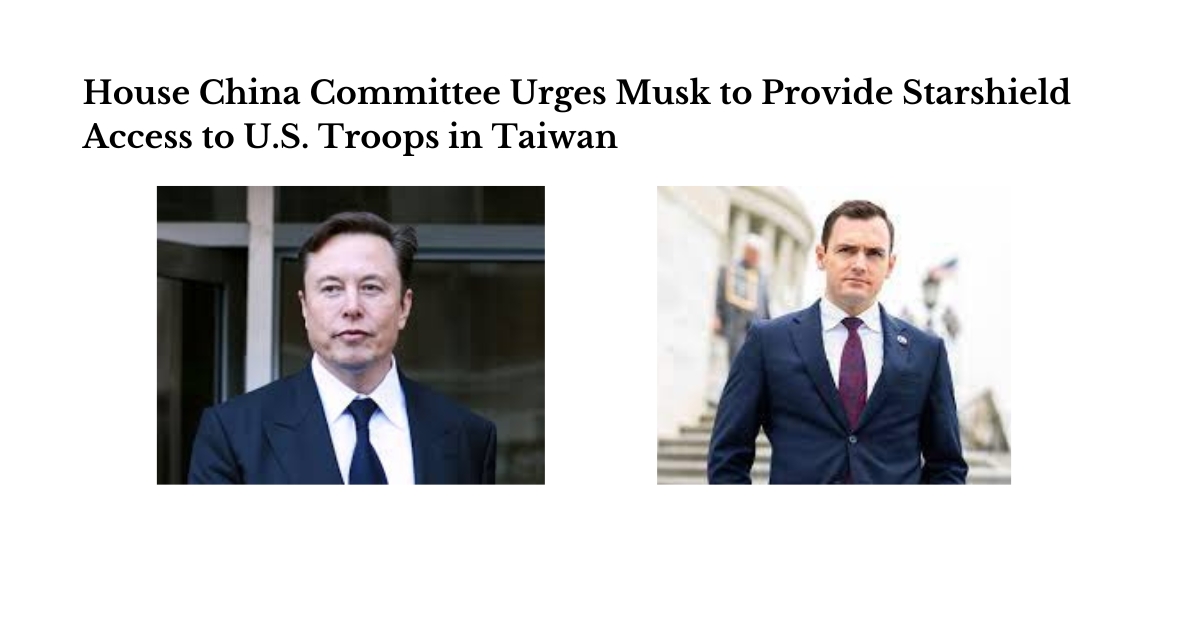Feb 26, 2024
In a recent development, the House China committee has sent a letter to Elon Musk, CEO of SpaceX, demanding access to the Starshield satellite communication network for U.S. troops stationed in Taiwan. The committee, led by Rep. Mike Gallagher, expressed concern after learning during a delegation’s visit to Taiwan that Starshield was not operational for American military personnel in the region.
The letter, reported by CNBC and Forbes, emphasized the potential violation of SpaceX’s Pentagon contract, which mandates “global access” to Starshield technology. SpaceX was awarded a one-year contract for Starshield in September, following the earlier commissioning of SpaceX’s Starlink network for Ukraine’s conflict with Russia.
The committee’s letter highlighted the critical role of Starshield in safeguarding U.S. interests in the Indo-Pacific region, stating that the absence of this communication network for American forces in Taiwan could pose severe risks in the event of military aggression by the Chinese Communist Party.
Notably, the letter underscored the importance of ensuring robust communication networks for U.S. military personnel in and around Taiwan. The Pentagon’s contract with SpaceX is contingent upon global access to Starshield, making its availability for American troops in the region crucial.
It’s worth noting that Tesla’s success relies on favorable business relations with China, leading Musk to maintain close ties with the country. Despite broader tensions between the U.S. and China, Tesla operates its own factory in Shanghai. Musk’s perspective on Taiwan was also mentioned, comparing it to an “integral part of China” in his remarks on the All-In Podcast.
In response to Musk’s comment, Taiwan’s Minister of Foreign Affairs, Jaushieh Joseph Wu, asserted on social media, “Listen up, #Taiwan is not part of the #PRC & certainly not for sale.” This exchange highlights the geopolitical complexity surrounding Musk’s statements and the implications for U.S.-Taiwan relations.
